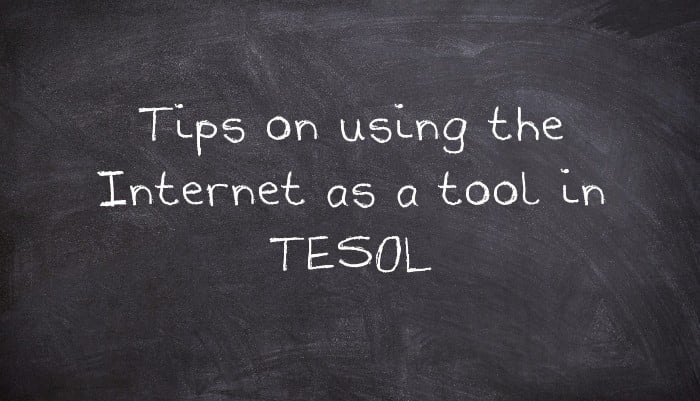A sound Internet lesson should:
• have aims that are perspicuously reflected in lesson materials. Not stating lesson aims might be confusing for students.
• make a coherent connection with course examinations/tests. Students need to see a connection with non-traditional and traditional learning.
• use technology to reinforce existing practice i.e. should have non-ICT elements in the lesson; students may want/expect to be taught more traditionally without being given so much autonomy. Lessons that have the highest potential for learning are where teachers have a planned amalgam of non-ICT and ICT roles, and students have timed chunks of autonomous ICT study.
• contain suitable sites level-wise (i.e. grammar/vocabulary) and topic-wise. This may be a difficult undertaking.
• not rely on one site and/or not use too many sites.
• have pre-screened sites i.e. so the teacher can explain to students what should be done.
• provide succinct site tasks for students on a lesson handout that can be taken away after the lesson
Long lists of ESOL resources do not seem to help teachers much. This suggests that teachers require more than just categorised hand-picked Internet lists or lists of well-known ESOL homepages; teachers need pedagogical guidance on how to use the Internet materials.
An example of how the above guidelines might be operationalised is available on:
http://www.englishlab.intercol.edu/internetlessons/ (click ‘an example of sound Internet pedagogy’)
Seven Internet lessons are also available on the site below. NB these lessons are suitable for approximately beginner to lower-intermediate level. These lessons were written by Katarzyna Rysiewicz (Intercollege)
Tips on using the Internet as a tool in TESOL

How to create an Internet-based lesson, with links to sample lessons.
Latest from ' Teaching English for Specific Purposes'
300 Technical English abbreviations list Read More »